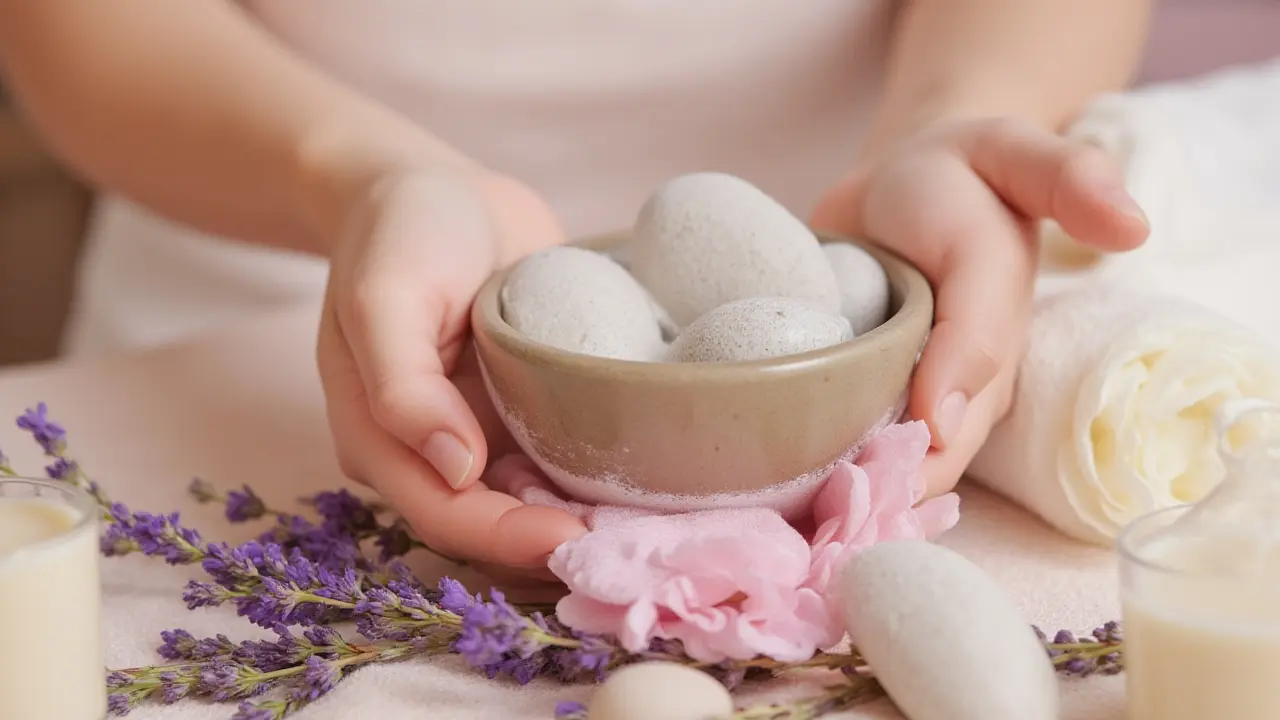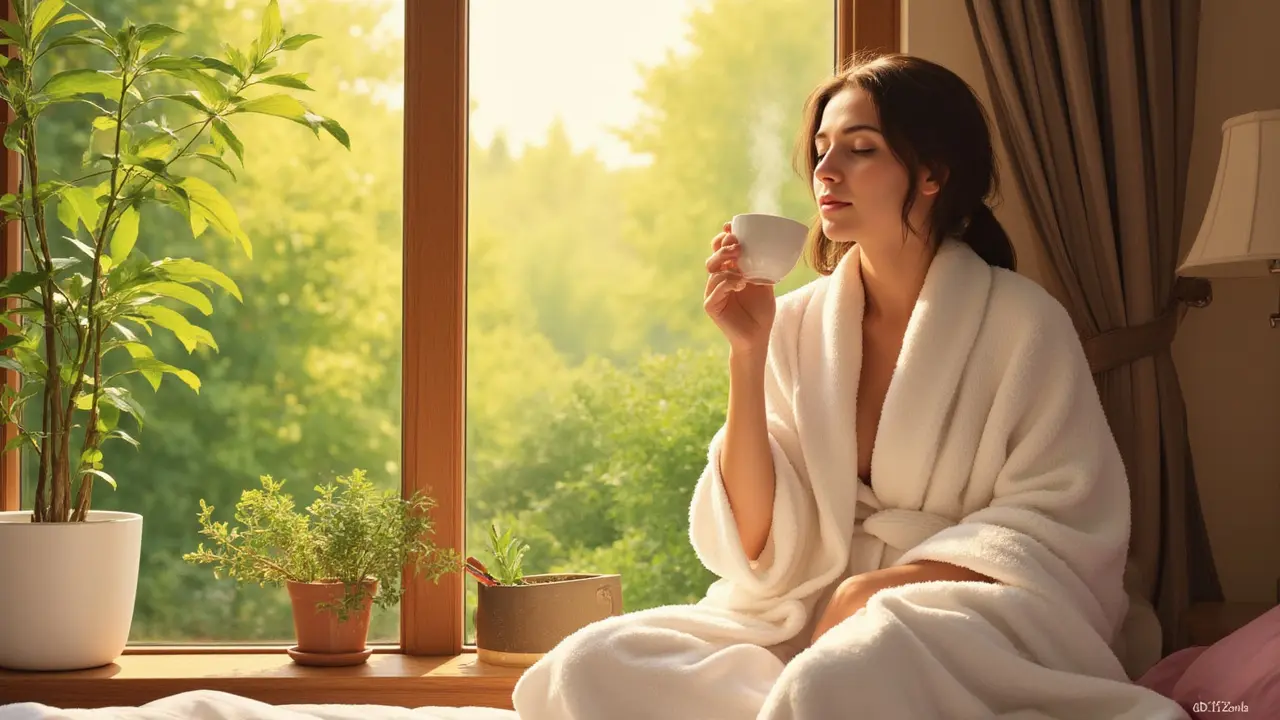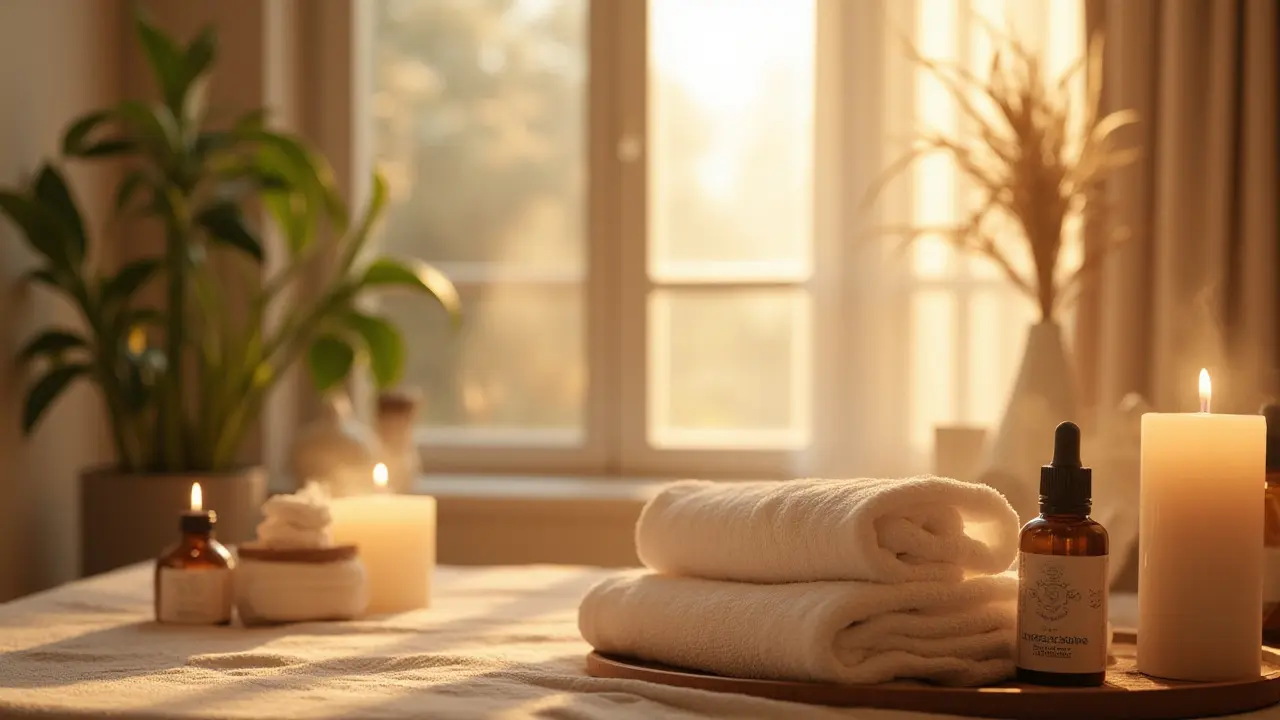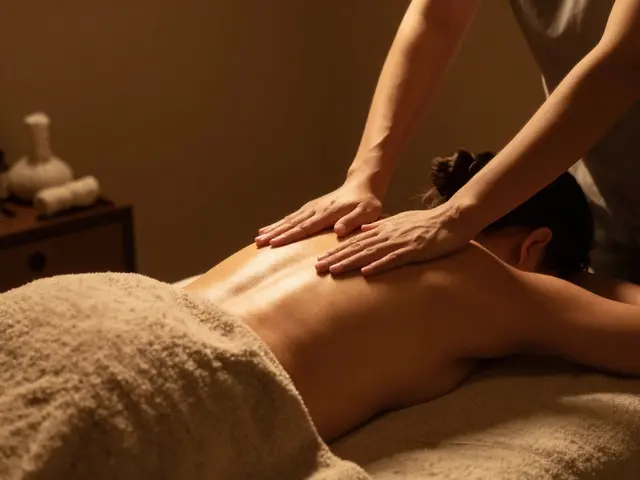Ever wondered why some people step out of a spa looking years younger, while others just look slightly less frazzled? It’s not just the magic in the masseuse’s hands—your massage session experience depends on more than you think. There are tiny habits, before and after the session, that shape how the whole thing feels. Imagine leaving the table actually floating instead of just sore—or, even better, with your brain full of happy vibes that linger for hours. This isn’t just luxury—it’s science and savvy blended right into everyday relaxation. Ready to get all the secrets?
Setting the Stage: How to Prepare for the Ultimate Massage Relaxant
Great massages are like great meals—they start before you get to the table. If you rush from the Metro or work straight onto the massage table, you bring all that tension and hurry along for the ride. Take fifteen minutes to decompress before you enter—walk around the area, grab a herbal tea, and switch off your phone. The body doesn’t relax on command; it needs a gentle nudge. Avoid caffeine or heavy meals at least two hours before your appointment—your body will focus better on relaxing, not digesting lunch or buzzing from coffee.
Hydration is your best friend. Most spa therapists in Paris agree: coming in well-hydrated helps your muscles and skin respond better. Water helps flush out the toxins released during a massage—yes, real studies from massage therapy journals back this up. Try to drink at least half a liter of water an hour or two before your appointment, but don’t overdo it—you don’t want to interrupt your bliss with a bathroom break.
Dress simply and comfortably. Ditch anything with tight waistbands, complicated straps, or jewelry. If you’re heading to a Parisian spa, you’ll often be given a robe and slippers, but arriving relaxed in your favorite loose outfit already puts your mind—and body—at ease. Let your therapist know if you have any injuries, sensitivities, or specific goals—like helping with back pain, improving sleep, or just zoning out.
Timing also matters. Book your massage for a time when you don’t have to rush afterwards. If you can, opt for an early afternoon slot. Morning massages can feel rushed, and evening ones might leave you too relaxed to focus if you have plans later. Research suggests people who take a short post-massage walk or sit in a nearby park actually enjoy longer-lasting effects. The key is to give your body time to absorb the benefits without stress snapping right back into place.
The vibe of the room counts, too. If the lighting or scents don’t work for you, don’t be shy to say so. Many spas will adjust music, aromatherapy, or even the table temperature if you ask. The best Parisian therapists personalize the experience for each guest. Remember: this session is for you, and anything that helps set the mood—gentle scents, warm sheets, quiet music—should feel just right.

Techniques and Tricks: Get the Most From Every Stroke
No two massages are the same. Swedish, deep tissue, hot stone, Thai—Paris is full of places to try them all. But there’s a common thread to a truly relaxing massage: communication and trust. The best massages happen when you’re honest about your comfort. Don’t grit your teeth if the pressure’s too much, and don’t stay quiet if you’re cold or the oils irritate your skin. Therapists say most guests are too polite—yet the best results come from real-time feedback.
Start by letting your mind focus on the sensation of touch. Researchers from Université Paris-Cité found that people who practiced mindful awareness during their session—paying attention to the way their muscles felt, and their breath—reported 20% stronger results in pain relief and relaxation. Let your therapist know if certain areas need more (or less) work. Shoulders, neck, and lower back store the kind of tension that can resist even skilled hands unless you relax those muscles. Try a slow, even breathing cycle—in for four, hold, out for six. Your heart rate drops, your muscles soften, and the session works deeper magic.
If you’re new to massage, know that not all techniques are about muscle—and not every session should hurt. Gentle effleurage moves (long, sweeping strokes) can be just as powerful for relaxation as more intense kneading. Research from the French Institute of Health and Medical Research highlights that light-pressure massage triggers the nervous system’s “rest and digest” mode, reducing stress hormone levels by up to 30%. Deeper isn’t always better—you want just enough pressure to relax, not to brace yourself against discomfort.
Don’t overlook the power of oils and scents. These aren’t just for ambiance—they matter. Lavender, chamomile, or ylang-ylang oils can actually enhance relaxation, according to a 2023 study published in the European Journal of Integrative Medicine. If you have skin allergies or sensitivities, tell your therapist—Paris spas usually keep several oil options for exactly this reason. Let them choose or bring your own preferred blend for a personal touch.
Want your session to last longer? Resist the urge to chat. Small talk might feel polite, but therapists note that quiet clients almost always leave more satisfied. Silence encourages a deeper, meditative state. If your mind wanders, come back to focusing on your breath or the sensation of your skin. And if you’re the type who gets chilly, ask for an extra blanket—staying warm helps your muscles stay supple and your brain stay dreamy.
| Massage Style | Average Session Time | Reported Relaxation Level (1-10) |
|---|---|---|
| Swedish | 60 min | 8.3 |
| Deep Tissue | 70 min | 7.8 |
| Hot Stone | 75 min | 9.1 |
| Thai | 90 min | 8.8 |
- Always hydrate thoroughly after your session; this helps flush toxins and supports muscle recovery.
- If you’re prone to headaches, ask to avoid head or neck oils—some scents can trigger migraines.
- Try not to schedule strenuous exercise or big meals immediately after your session—your body’s priority should be recovery.
- When in doubt, aim for a moderate pressure massage; studies show it relieves stress best for most people.
- Soft clothing—or no clothing, under a towel, if you feel comfortable—lets your muscles relax more freely.

Aftercare and Long-Lasting Effects: How to Make Your Relaxation Stick
So you’ve floated off the table and you’re feeling like a new person—but the story doesn’t have to end there. What you do in the next hours can double the benefits of your massage relaxant session, and maybe even make a difference in your entire week. Seriously, it’s not hype. Simple aftercare steps are supported by research and widely used in top Paris spas.
First: don’t rush back into high-stress environments. Give yourself space to ease back. Taking ten silent minutes in the spa lounge, or even wandering a quiet block before getting back on the Metro, helps your nervous system ‘lock in’ the sense of calm. The French National Academy of Medicine suggests that stretching lightly after massage—think yoga poses or a slow, gentle walk—can also extend muscle relief, reducing next-day aches by more than 40% compared to those who go straight back to their routine.
Hydrate again post-massage—this time, think another half-liter to a full liter over the next few hours. Massage promotes lymphatic drainage, meaning the body is moving out metabolic waste faster. Water helps finish the job, preventing aches or that heavy feeling sometimes called a ‘post-massage hangover.’ Light herbal teas (like mint or chamomile) work wonders too.
If you’re sensitive to oils or have sensitive skin, wash off applied lotions within a few hours, but skip harsh soaps. Instead, opt for lukewarm water and gentle cleansers. If you loved the oils, leave them on longer—they often include moisturizers that benefit your skin. Lotions with arnica are popular in Paris, as they can soothe mild aches and encourage faster muscle recovery. Ask your therapist for their favorite recommendations—they usually know the tricks people don’t see on the menu.
Next, think about sleep. Most people experience deeper, more restful sleep after a relaxing massage—provided they keep tech at bay and resist the lure of social scrolling. Try a warm bath with Epsom salts if you want extra muscle relief. Avoid caffeine for a few hours post-massage to let your body’s natural endorphins and serotonin-producing processes operate at full throttle.
Last—and this is where most people go wrong—try journaling briefly about how you feel, or what stress seems lighter afterward. A surprising number of studies say that reflecting, even for five minutes, anchors your brain’s new relaxed state. If you’re a regular spa-goer, it builds up a record of what works best, so you can customize future sessions for maximum payoff.
- Skip heavy tasks and intense exercise for the rest of the day.
- Wear comfortable clothes to avoid skin irritation or compressing relaxed muscles.
- If headaches or soreness develop, drink more water, try a warm compress, and contact your spa for advice—they’ve seen it all.
- Book your next session while details are fresh; regular appointments multiply benefits over time.
Wrap all these tips together, and your massage relaxant might just become your new favorite ritual—and a lot more powerful than you ever expected. Whether you’re a curious first-timer or a Parisian spa regular, the right prep, communication, and aftercare can turn a simple massage into a complete reset for body and mind.






